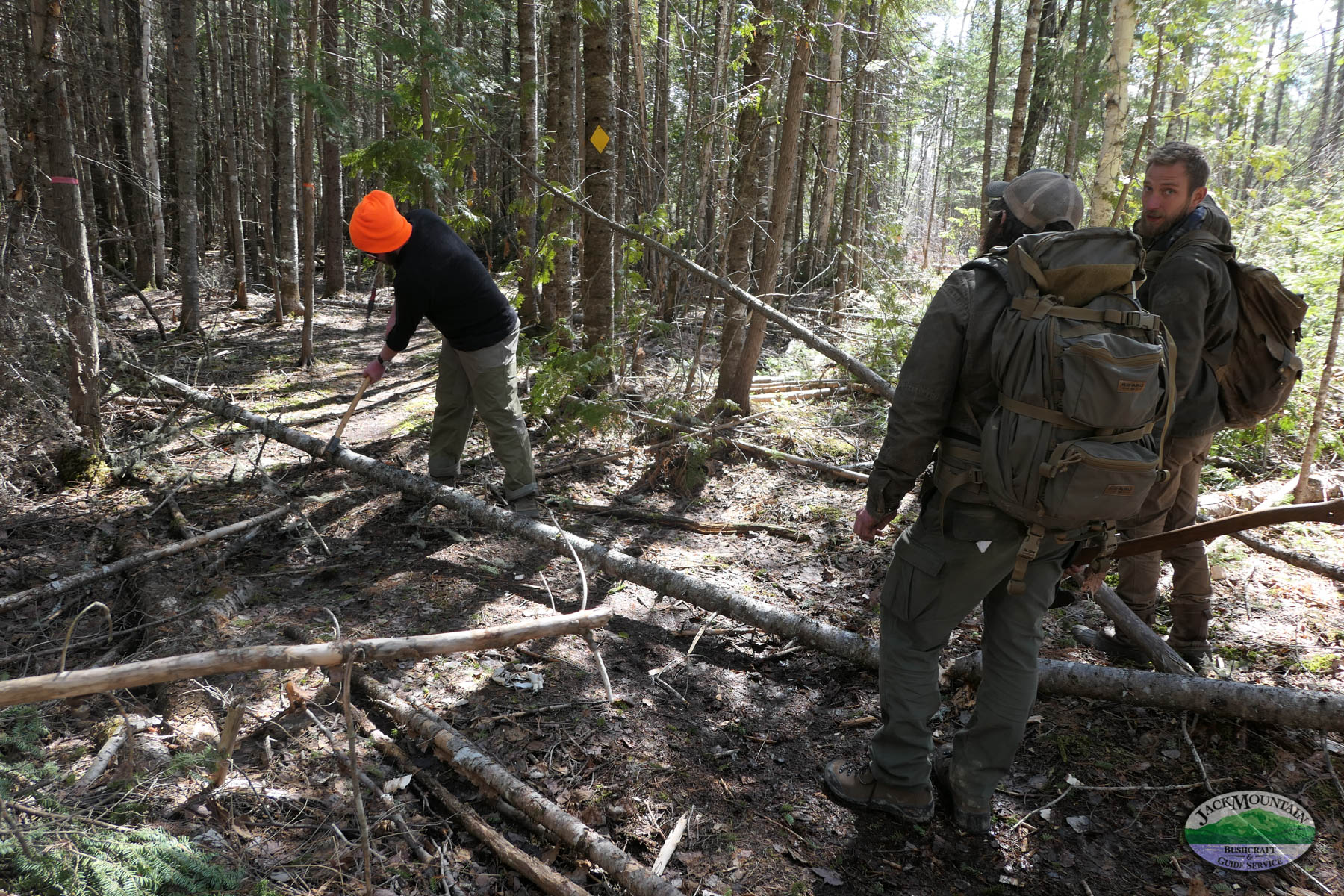This morning we’re starting week 2 of the 9-week Wilderness Guide Training Semester. This week we’ll continue with our deep dive into self-reliant living in the forest with more useful plants and campfire cooking skills. We’ll also be adding our first shelter of the course, where students will spend four consecutive nights before moving on to the next shelter. Also, we’ll be making cordage by hand (minimum of ten feet, and strong enough to support the students weight) as well as making ropes to use for the remainder of the course. Needless to say, we’ll be busy with new material, as well as practicing axe, knife and fire skills covered last week.
The first week of a long-term program is all about settling in and building good habits and routines. Now that week-one is behind us, we can start to dial in and move more rapidly. This isn’t to say we’ll be rushed, because deep learning happens at its own pace and will never be rushed. But as people learn the routines of camp life, we can be more focused and get more done in less time.
Our big craft for the week will be starting on canoe paddles. This is always an educational process, as it brings together an understanding of wood grain, hand tools, braces to hold the blank, and a bunch of other skills. The magic of the paddle project lies in the fact that people make the whole thing themselves using simple hand tools, then take it out and use it extensively. Were we not to put so many miles on the paddles, the project would be more abstract and theoretical. But since we’ll put over 100 miles on the paddles, it is instead concrete and tangible. I am a vocal critic of the abstract nature of modern education. While it serves some students, it leaves entire swaths of young people frustrated and looking for alternatives. Part of our educational philosophy is to make the learning process as tangible as possible. Take crafts from start to finish, then use them. Study trees and plants we can walk out and touch, taste and smell. Learn about the local ecology instead of a rainforest thousands of miles away. In short, to build a personal relationship with the land by interacting with it. Such a tangible approach to learning is how we evolved as a species, and it viscerally agrees with many people who are disenchanted with modern, abstract education.








